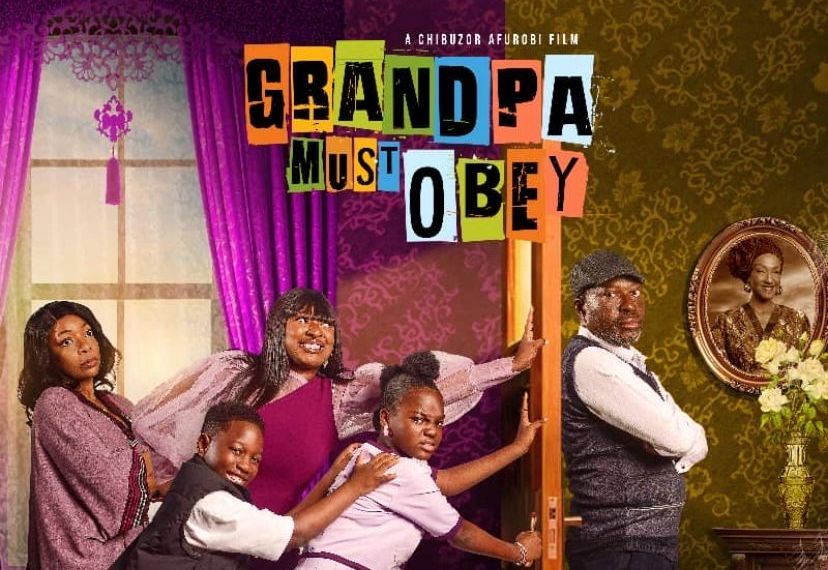Nigeria will not be represented in the International Feature Film (IFF) category at the 2026 Academy Awards, after the Nigerian Official Selection Committee (NOSC) recently announced it would not be submitting any film for consideration. This decision, made public via a statement from NOSC Chairperson Stephanie Linus, has sparked conversations across the nation’s film community and beyond about the standards and aspirations for Nigerian cinema on the global stage.
The Decision: Why No Nigerian Entry for 2026?
According to Linus, NOSC initiated a call for entries in August and received six films from Nigerian filmmakers. However, after a detailed screening and deliberation process, the committee reached a “No Submission” verdict in a September 26 meeting, with the majority of members voting against nominating any of the entries for the 2026 Oscars.
Linus outlined the rationale, citing that while progress is evident in the technical and creative quality of Nigerian films, more is needed to reach the highly competitive standards set by the Academy. She observed, “While Nigerian films have no doubt shown significant improvement and growing awareness of IFF standards, there is still a deficit in creative and technical intentionality that will improve their competitive potential for global awards.”
What Does it Mean for Nigerian Filmmakers?
Nollywood, Nigeria’s renowned film industry, has grown exponentially in the past two decades, yet breaking into the Oscar IFF category remains an ongoing challenge. By not submitting an entry for 2026, NOSC’s move has prompted tough questions for filmmakers:
- Are Nigerian films sufficiently competitive at the international level?
- What prevents local productions from meeting the Academy’s standards?
- How can the industry better nurture stories and technical expertise that resonate globally?
Filmmaker Adebayo Lawal, reacting to the news, remarked, “This is a hard truth, but it offers us a chance to look closely at the global benchmark. We clearly have what it takes, but we must be deliberate about every aspect of our storytelling, sound, and visuals.”
Inside the Oscar’s International Feature Film Category
The Best International Feature Film award is reserved for feature-length movies produced outside the United States, with at least 50% of the dialogue in a language other than English. The Academy’s criteria go beyond language, emphasizing world-class storytelling, originality, cinematography, production values, and cultural resonance.
Notably, the category has become fiercely competitive in recent years, with entries from countries like South Korea, Mexico, and South Africa drawing global acclaim. South Africa’s “Tsotsi” famously won in 2006, highlighting that African cinema can make a significant impact. Ghana has also recently increased efforts to put West African storytelling in global conversations, though it faces similar challenges as Nigeria in scaling up production values and global recognition.
What’s Holding Nigeria Back From Oscar Glory?
A Lagos-based film critic, Tola Akanbi, explained, “Although Nollywood leads in volume, many local films lack the meticulous post-production, nuanced narrative, and budgetary investments that Oscar-nominated titles demonstrate.” She added that access to international-standard training, collaborations, and funding continues to affect the quality of submissions.
Over the years, other issues have included copyright complications, eligibility requirements, and sometimes, the late start in local Oscar campaigns. In 2019, Nigeria submitted “Lionheart,” but it was later disqualified after the Academy cited its predominantly English dialogue.
Efficiency in the selection process remains a concern as well. Oyiza Jagede, a veteran film producer, points out, “We should be encouraging script development workshops, co-productions with countries whose films win the Oscars, and leveraging Nigeria’s immense storytelling talent.”
Proactive Steps for Improvement
In her statement, NOSC Chairperson Linus emphasized the committee’s determination to foster a new generation of globally competitive films. “This is why the NOSC will be taking more proactive steps to encourage filmmakers to create with the Oscars in mind,” she explained. She also encouraged local filmmakers to study previous winners and nominees to better understand the Academy’s expectations.
Additionally, industry stakeholders advocate for more mentorship programs, technical training, and access to international film festivals. A recent report from the Pan African Federation of Filmmakers notes that African countries that consistently participate in international festivals tend to perform better at the Oscars and other global awards ceremonies.
Local and Regional Reactions
The announcement prompted a range of reactions across Nigeria and West Africa. Some filmmakers describe this as a “wake-up call,” while others express frustration at the decision, insisting that more transparency is needed in how the NOSC makes its final decisions. Chinedu Opara, a Nigerian film journalist, noted on social media, “This should not be a moment of discouragement but of rallying together to demand the right infrastructure and support for our film sector.”
Regional filmmakers, including some from Ghana and Côte d’Ivoire, recognize similarities in their struggles. “Like Nigeria, Ghanaian filmmakers are learning to balance local authenticity with globally recognized standards,” said Kwame Mensah, a Ghanaian director. Collaboration across borders, many say, could help West African films shine brighter on the international stage.
Looking Ahead: Can Nollywood Earn Its Place on the Global Stage?
The IFF Oscar remains a cherished goal for many in Nollywood. As streaming platforms such as Netflix and Amazon Prime invest in Nigerian and African content, the global appetite for diverse stories grows. Industry experts suggest that the next big Oscar contender may come from collaborative efforts — between Nigerian filmmakers and their counterparts elsewhere in Africa, but also via strategic partnerships with international producers and technical teams.
Beyond the Oscars, the process of holding Nigerian cinema to high standards benefits the entire industry. As NOSC moves to implement proactive initiatives and filmmakers reflect on the gaps, it is clear the long-term future of African cinema, and Nollywood in particular, remains promising.
The debate over Nigeria’s Oscar no-show in 2026 centers not just on missed opportunities, but on the need for an industry-wide commitment to storytelling excellence, world-class technical capacity, and creative ambition.
What steps do you think Nigerian filmmakers and industry stakeholders should prioritize to finally clinch the Oscar IFF nomination? Have a perspective or story to share about the journey of African cinema? Drop your thoughts in the comments and follow us for continuing updates on Nollywood and the global film industry.
Do you have an exclusive story, behind-the-scenes scoop, or news tip related to the film industry in Nigeria, Ghana, or across Africa? Want to see your experience featured or think your unique insight could spark conversation? Email us at story@nowahalazone.com to get your story posted or discuss story sales.
For any general support, please reach out at support@nowahalazone.com. Stay engaged with the latest updates from Nollywood and African entertainment — follow us on Facebook, X (Twitter), and Instagram. Your voice matters; let’s shape the story together!










